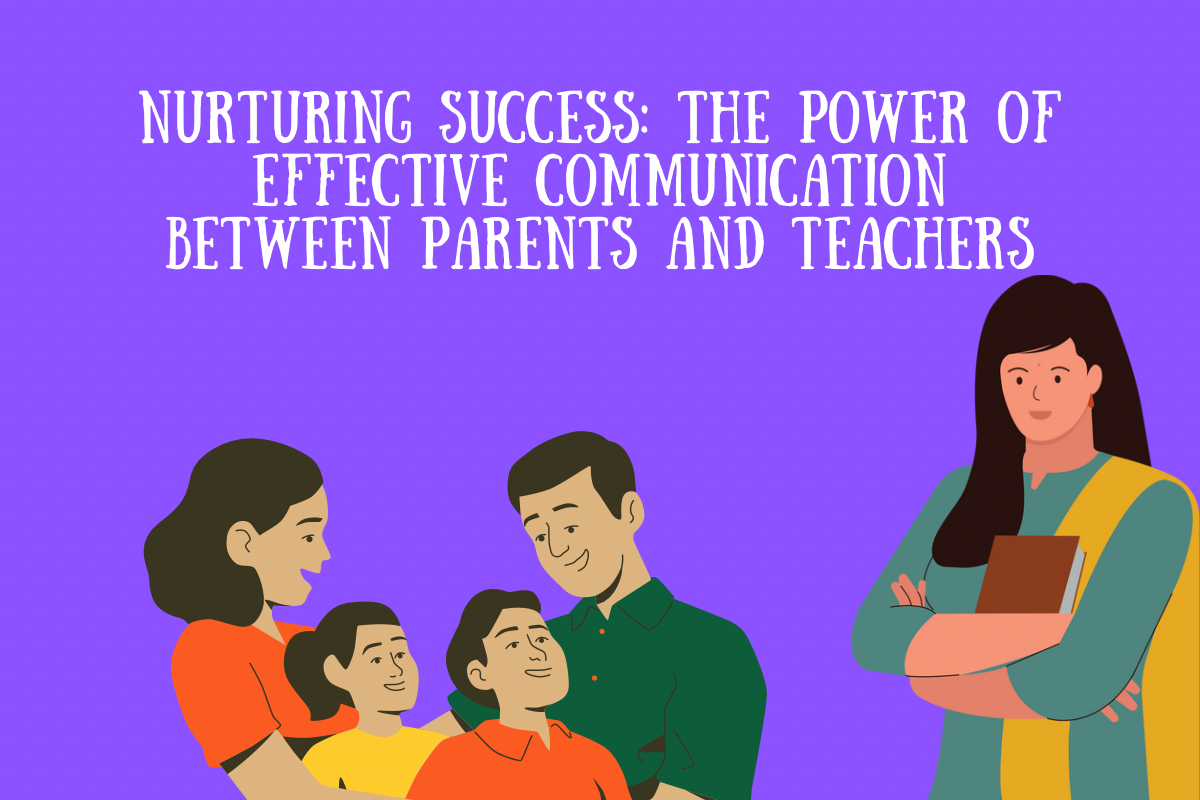Nurturing Success: The Power of Effective Communication Between Parents and Teachers
By~ Scholar Planet
Created At: 19 Aug, 2023

Effective communication is the cornerstone of any successful partnership, and nowhere is this truer than in the relationship between parents and teachers. The collaboration between these two pillars of a child's development is pivotal in fostering a supportive and enriching learning environment. Clear and open lines of communication not only promote academic growth but also contribute to a child's overall well-being. In this article, we explore the significance of effective communication between parents and teachers and delve into strategies that can enhance this vital partnership.
Understanding the Importance
The impact of parental involvement in a child's education has been extensively studied and proven to yield positive outcomes. When parents and teachers communicate effectively, they gain insights into the child's strengths, weaknesses, and learning style. This shared understanding helps tailor teaching methods and strategies to meet individual needs, ultimately leading to improved academic performance.
Moreover, consistent communication reassures students that their parents and teachers are united in their commitment to their success. This unity creates a sense of stability and support that fosters a positive attitude towards learning, boosting confidence and self-esteem.
Building Trust and Rapport
Effective communication builds trust and rapport between parents and teachers. Trust is the foundation upon which a collaborative relationship is built, allowing parents and teachers to work together towards common goals. Teachers who openly share their observations, concerns, and strategies with parents demonstrate their dedication to the child's growth, promoting a sense of transparency and mutual respect.
Similarly, parents who actively engage in conversations with teachers show their commitment to their child's education and well-being. This engagement fosters a culture of cooperation where both parties can openly discuss challenges, celebrate achievements, and address any issues that may arise.
Methods for Effective Communication
1. Regular Updates: Establishing regular communication channels, such as weekly newsletters or updates through online platforms, keeps parents informed about upcoming events, classroom activities, and academic progress. This consistency ensures that parents are well-informed without feeling overwhelmed.
2. Parent-Teacher Conferences: Scheduled meetings provide an opportunity for in-depth discussions about a child's progress, strengths, and areas needing improvement. Both parties can collaborate on strategies to support the child's growth and set realistic goals.
3. Open-Door Policy: Teachers who maintain an open-door policy welcome parents to reach out with concerns or questions. This approach encourages parents to communicate freely without hesitation.
4. Digital Platforms: Utilizing digital tools like email, messaging apps, or online portals allows for efficient communication between busy parents and teachers. Sharing resources, assignments, and progress reports digitally ensures that parents are always in the loop.
5. Positive Feedback: Regularly sharing positive feedback and acknowledging a child's accomplishments, no matter how small, fosters a positive relationship. This positivity strengthens the parent-teacher partnership and motivates the child to excel.
As we move forward, let us remember that the key to nurturing successful individuals lies in the power of effective communication between parents and teachers.
Download the Scholar Planet app now:
https://play.google.com/store/apps/details?id=com.gcap.jumbleword&hl=en_AU
